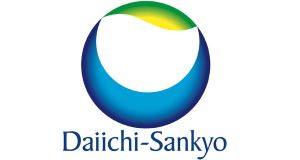The booster vaccination trial is still ongoing and further data will provide more information around safety and efficacy.

Following the unprecedented success of mRNA COVID-19 vaccines, pharma companies are working towards further developing the technology to capitalize on the tremendous growth opportunities. Recently, Daiichi Sankyo initiated Phase III trials of its COVID-19 vaccine, DS-5670, in healthy unvaccinated adults. Although it is a promising homegrown mRNA vaccine option, to be successful in the domestic market, it will need to exceed the safety and efficacy benchmarks set by the global mRNA vaccines, says GlobalData, a leading data and analytics company.
DS-5670 showed positive interim results in a booster vaccination trial (Phase I/II/III, n=5028). Data suggest that the efficacy of DS-5670 is comparable to or higher than approved mRNA vaccines (Pfizer’s Comirnaty and Moderna’s Spikevax). Daiichi Sankyo is expected to apply for approval of DS-5670 as a booster dose with the Japanese regulatory body the Pharmaceuticals and Medical Devices Agency (PMDA) within 2022. Moreover, the booster vaccination trial is still ongoing and further data will provide more information around safety and efficacy.
According to GlobalData’s Pharma Intelligence Center, three mRNA COVID-19 vaccines are in Phase III development by Asian companies. In 2021, leading mRNA vaccines, Comirnaty and Spikevax, generated combined sales of more than $54 billion globally and are expected to generate similar or greater sales in 2022.
Prashant Khadayate, Pharma Analyst at GlobalData, comments: “There is no doubt that mRNA vaccines have dominated the overall COVID-19 vaccination scheme globally, particularly those from Pfizer and Moderna, as they are convenient to modify against different strains of COVID-19. While Daiichi Sankyo is somewhat late in developing an mRNA vaccine, considering the overall potential of COVID-19 vaccines and the existing competition, it has the potential to generate a lot of value, particularly if found to be more efficacious.”
Japan has seen a sharp increase in COVID-19 cases in the recent past. At the end of 2021, Japan reported 1.7 million confirmed COVID-19 cases. The number has surpassed 20 million as of 27 September 2022.
Khadayate concludes: “Considering the drastic increase in COVID-19 cases in Japan over the last nine months, a homegrown mRNA vaccine could not only be highly advantageous in reducing the reliance on mRNA vaccines from Pfizer and Moderna but will also be more cost-effective. However, it is important to note that a homegrown mRNA vaccine like DS-5670 exceeds the safety and efficacy benchmarks set by leading players, as they have already generated a lot of real-word data on use, which will be hard to compete with.”

Subscribe To Our Newsletter & Stay Updated